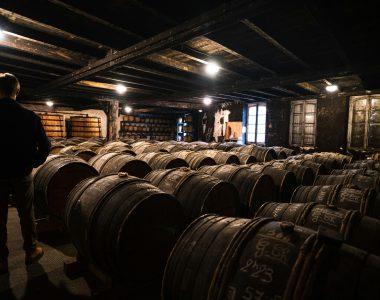
Wine has a rich and ancient history across the globe, yet Africa’s role in the story of wine is often overlooked. While the continent is more commonly associated with beer and spirits, the history of wine in Africa is a fascinating tale that spans millennia, encompassing ancient traditions, colonial influences, and the rise of a modern wine industry that is gaining international recognition. In this post, we’ll explore the journey of wine in Africa, from its early beginnings to its current status as a growing player in the global wine market.
Ancient Beginnings: Egypt and the Cradle of Wine

The earliest evidence of wine in Africa dates back to ancient Egypt, around 3,000 BCE. The Egyptians were among the first to cultivate grapes and produce wine, which played a significant role in their religious and social practices.
1. Wine in Ancient Egypt
In ancient Egypt, wine was associated with both the gods and the elite. It was primarily consumed by the pharaohs, priests, and nobility, and it featured prominently in religious rituals, funerary practices, and banquets. Wine was often depicted in tomb paintings, showing scenes of grape harvesting, winemaking, and feasting. The Egyptians believed that wine would accompany them into the afterlife, and it was included in the grave goods of the elite.
2. The Symbolism of Wine
Wine in Egypt was linked to the god Osiris, the deity of agriculture and the afterlife. Osiris was often depicted with grapevines, symbolizing the connection between wine, fertility, and rebirth. The Egyptians also had a unique practice of producing different types of wine from various regions along the Nile Delta, each with its own distinct flavor and quality.
The Spread of Wine Through North Africa
Following the decline of ancient Egypt, wine production in Africa continued to develop, particularly in the northern regions. The arrival of the Phoenicians, Greeks, and Romans brought new winemaking techniques and expanded viticulture across the Mediterranean coast.
1. Phoenician Influence
The Phoenicians, skilled seafarers and traders from the Levant, played a crucial role in spreading wine culture across the Mediterranean, including the North African coast. They established trade routes that introduced wine to regions like Carthage (modern-day Tunisia), where viticulture began to take root.
2. Roman Expansion
The Roman Empire’s expansion into North Africa further cemented wine’s presence in the region. The Romans introduced advanced viticulture and winemaking techniques, establishing vineyards in present-day Algeria, Tunisia, and Morocco. These regions became important wine-producing areas, supplying wine to Rome and other parts of the empire.
3. The Decline and Preservation of Wine Culture
With the fall of the Roman Empire and the spread of Islam in North Africa, wine production and consumption declined due to religious prohibitions against alcohol. However, some winemaking traditions persisted, particularly among Christian and Jewish communities. In areas like the Maghreb, wine continued to be produced on a smaller scale, often for medicinal or ceremonial purposes.
The Colonial Era: Wine in Southern Africa
The history of wine in Southern Africa began in the 17th century, with the arrival of European settlers, particularly the Dutch and the French. These colonizers brought with them their knowledge of viticulture and laid the foundation for what would become Africa’s most prominent wine-producing region.
1. The Arrival of the Dutch
In 1652, the Dutch East India Company established a supply station at the Cape of Good Hope, in present-day South Africa, to support ships traveling between Europe and the East Indies. Jan van Riebeeck, the first commander of the Cape, planted the region’s first vineyard in 1655, with the first successful wine production recorded in 1659. The initial aim was to provide wine as a source of hydration and nutrition for sailors.
2. The French Influence
The arrival of French Huguenots in the late 17th century further boosted the development of the South African wine industry. Fleeing religious persecution in France, the Huguenots brought with them their winemaking expertise and established vineyards in the Franschhoek Valley and other regions. Their influence is still evident today, with many South African wineries bearing French names and producing wines that reflect French styles.
3. The Rise of South Africa’s Wine Industry
Throughout the 18th and 19th centuries, the South African wine industry grew, with Constantia, a wine estate near Cape Town, becoming famous for its sweet wines, which were exported to Europe and enjoyed by royalty. However, the industry faced challenges, including phylloxera, a vine pest that devastated vineyards in the late 19th century, and trade restrictions imposed during British rule.
The Modern Era: African Wines on the Global Stage
Today, the African wine industry is dominated by South Africa, which is the continent’s leading producer and exporter of wine. However, other regions, particularly in North Africa, are also contributing to the continent’s growing reputation in the wine world.
1. South Africa: A Wine Powerhouse
South Africa is now one of the top ten wine-producing countries in the world. The country’s diverse climate and terroir allow for the production of a wide range of wine styles, from robust reds like Pinotage (a uniquely South African grape variety) to elegant whites like Chenin Blanc.
- Stellenbosch: The Stellenbosch region is the heart of South Africa’s wine industry, known for producing some of the country’s finest wines. The region’s Mediterranean climate and varied soils are ideal for growing grapes, and its wines have gained international acclaim.
- Constantia: The Constantia wine region, with its cool climate, continues to produce the dessert wines that made it famous centuries ago, alongside a variety of other wine styles.
2. The Emerging North African Wine Regions
In North Africa, countries like Morocco, Algeria, and Tunisia have seen a resurgence in wine production, driven by investment in modern winemaking techniques and a focus on quality.
- Morocco: With its diverse climates and soils, Morocco is producing a variety of wines, including reds made from Cabernet Sauvignon and Syrah, and crisp whites from Chardonnay. The country’s wine industry is growing, with an increasing number of wineries focusing on high-quality production.
- Algeria: Once one of the largest wine producers in the world during the French colonial period, Algeria’s wine industry declined after independence. However, there is renewed interest in reviving its vineyards and producing wines that reflect the country’s unique terroir.
- Tunisia: Tunisia has a long history of winemaking dating back to the Phoenicians and Romans. Today, the country produces a range of wines, with a focus on Mediterranean varietals like Muscat and Grenache.
3. Wine Tourism and Cultural Significance
Wine tourism is becoming an important aspect of the African wine industry, particularly in South Africa. The Cape Winelands attract millions of visitors each year, who come to experience wine tastings, vineyard tours, and the stunning landscapes. This growing interest in African wines is helping to raise the profile of the continent’s wine industry on the global stage.
Conclusion
The history of wine in Africa is a story of ancient traditions, colonial influences, and modern innovation. From the vineyards of ancient Egypt to the bustling wine regions of South Africa and the emerging wine industries in North Africa, wine has played a significant role in the continent’s cultural and economic development.
As African wines continue to gain recognition worldwide, they represent not only the diversity and richness of the continent’s terroirs but also the resilience and creativity of its people. Whether you’re enjoying a glass of South African Pinotage or a Moroccan Syrah, you’re partaking in a tradition that spans thousands of years and connects Africa to the global history of wine. Cheers to the past, present, and future of African wines!


